Kay Family Crest, Coat of Arms & Kay Name Origin
|
|
|
|
|
| Return to Home page | Bookmark this page | Link to this page | Send a Kay Postcard |
| Find Your Name | ||||||||
| A | B | C | D | E | F | G | H | |
| I | J | K | L | M | N | O | P | |
| Q | R | S | T | U | V | W | X | |
| Y | Z | |||||||
Kay Family Crest


Origin of the Name Kay
The Kay family history was found in the allfamilycrests.com archives. Meaning 'at the quay', Kay is a locational name from a residence nearby. There was an old family of this name in Yorkshire, and Kay and Kaye are recorded in Lincolnshire, Huntingdonshire, and Cambridgeshire, as far back as the thirteenth century. Variants of the name include Kaye, Keay, Key and Keye. This name is of Anglo-Saxon descent spreading to the Celtic countries of Ireland , Scotland and Wales in early times and is found in many mediaeval manuscripts throughout these countries. Examples of such are a Robertus Cay who was recorded in the 'Poll Tax' of the West Riding of Yorkshire, England , in the year 1379 and a Jordan Kay, who was recorded in the 'Hundred Rolls' in the year 1273. In Scotland a Thomas Kaa was on an Inquest taken at Berwick on Tweed in the year 1370, and an Alexander Ka was Burgess of Edinburgh in the year 1536.
In Ireland this name and its variants were introduced into Ulster Province by settlers who arrived from England and Scotland , especially during the seventeenth century. It was the 'Plantations of Ireland ' in the sixteenth and seventeenth centuries that marked the end of Gaelic supremacy in Ireland . While the influx of settlers in the wake of the earlier Anglo-Norman invasion of the twelfth century resulted in a full integration into Irish society of the new arrivals, the same never occurred with the Ulster Planters who maintained their own distinct identity.
Kay and McKay are also used as occasional anglicized forms of the Gaelic MacAodha name, which was also changed to McKee, McHugh and McCoy.
The Kay coat of arms came into existence centuries ago. The process of creating coats of arms (also often called family crests) began in the eleventh century although a form of Proto-Heraldry may have existed in some countries prior to this. The new art of Heraldry made it possible for families and even individual family members to have their very own coat of arms, including all Kay descendants.
|
WONDERFUL GIFTS FOR EVERY OCCASION
Show Off Your Heritage With Our Range Of Top Class Gifts For Your Family Name! VERY LIMITED TIME OFFER: FREE DELIVERY!!! |
||
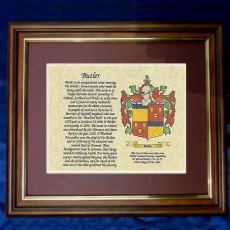 Parchment Prints: Framed, Unframed, Perfect  |
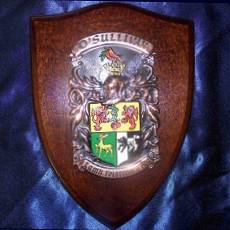 Researched Hand-Painted Plaques & Shields  |
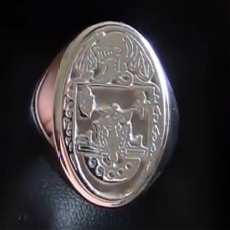 Incredible Hand-Engraved Signet & Seal Rings  |
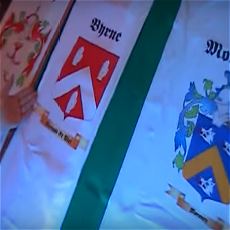 Get your Family Crest Flag, on Ireland or White background!  |
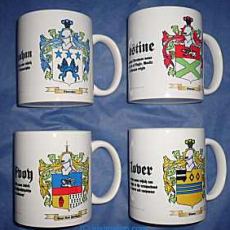 Personalized Coffee Mugs Make Thoughtful Personalized Gifts  |
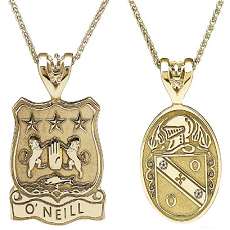 Engraved Pendants in Gorgeous Gold or Stylish Silver.  |